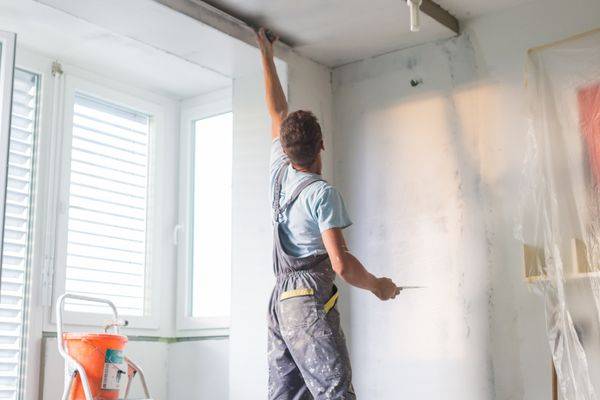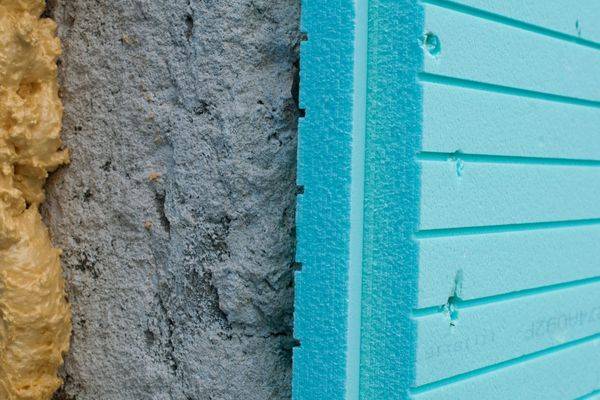There are many types of insulation that can be used for soundproofing, but not all are created equal. Some types of insulation are better at blocking out noise than others. Here’s what you need to know if you’re seeking for the best insulation type to soundproof your walls, ceiling, windows, or doors.
Foam insulation is one of the most effective materials for soundproofing. It’s made from polyurethane or other materials and is available in various densities.
Foam insulation blocks noise by absorbing sound waves and reducing vibration. Both recording studios and movie theatres frequently use it.
Another good option for soundproofing is fiberglass insulation. It’s made from glass fibers and comes in batts or rolls.
Fiberglass insulation works by absorbing sound waves and stopping them from echoing off hard surfaces. Below of this article you get all information about best soundproofing materials for your home.

Which material of insulation will be best for wall, ceiling, window, and door use?
There are several things to think about when it comes to insulation. The type of insulation you choose will depend on the climate you live in, the type of home you have, and your budget. Here are some tips on how to choose the best insulation for your door, window, and ceiling.
In general, there are three types of insulation: fiberglass, cellulose, and spray foam. Each has its own benefits and drawbacks.
Fiberglass is the most common type of insulation and is relatively inexpensive. However, it does not provide as much protection as cellulose or spray foam. Cellulose is made from recycled paper products and provides good insulation at a moderate price.
Spray foam is the most expensive option but is also the most effective at keeping your home warm in the winter and cool in the summer.
When choosing insulation for your home, it is important to consider the R-value.
Sound Transmission Class (STC):
If you’re looking for the best insulation for your home, you’ll want to know about sound transmission class (STC). This rating system is used to determine how well a material can block out noise. The higher the STC rating, the better the insulation will be at blocking out noise.
There are a few things to keep in mind when choosing the best insulation for your needs. You must first choose the sort of insulation you desire. Insulation comes in two primary varieties: fiberglass and cellulose.
Fiberglass is the most common type of insulation and is typically used in walls and ceilings. Cellulose is less common, but it’s often used in doors and windows because it’s more effective at blocking out noise.
Once you’ve decided on the type of insulation you want, you’ll need to choose a thickness.
Noise Reduction Coefficient (NRC):
If you want to reduce the amount of noise in your home, you need to choose the best insulation for your door, walls, ceiling, and windows. The material you choose should have a high Noise Reduction Coefficient (NRC). This measure indicates how well a material absorbs sound. The ability of the material to absorb sound increases with NRC.
Insulation comes in a wide variety of varieties on the market today. Some common materials include fiberglass, cellulose, rock wool, and foam. Each type of insulation has its own unique properties that make it more or less effective at reducing noise.
To choose the best insulation for your needs, you need to consider the type of noise you are trying to reduce.
Thermal Resistance (R-Value):
When it comes to insulating your home, the R-value is one of the most important factors to consider. The R-value is the thermal resistance of insulation and the higher the R-value, the greater the insulation’s ability to resist heat flow.
There are a number of different factors that you need to take into account when choosing the best insulation for your needs, including the climate you live in, the type of construction of your home, and your budget.
In general, fiberglass batts or rolls are a good choice for walls, ceilings, and doors in most homes.
If you live in a colder climate or have a drafty home, you may want to consider using rigid foam board insulation. This type of insulation has a higher R-value and can help keep your home warmer in winter and cooler in summer.
Moisture Resistance:
If you’re looking for the best insulation for your home, you’ll want to consider its ability to resist moisture. Mold and mildew can thrive in moist environments, which can have negative health effects.
The best way to choose an insulation that will resist moisture is to look for one that has a high R-value. This indicates that the material is resistant to water vapor and will help keep your home dry.
Fire Resistance:
When it comes to choosing the best insulation for your home, fire resistance is an important factor to consider. In the event of a fire, insulation with a high fire resistance will aid in defending your property. There are a variety of different types of insulation available on the market, so it is important to do your research to find the best option for your needs.
What Type Of Insulation You Can Use For Your House?
There are many different types of insulation that you can use for your house in order to keep it comfortable and at a peaceful temperature. Fiberglass, cellulose, and spray foam are a few of the insulation materials that are used most frequently.
Each variety has a unique set of advantages and disadvantages that you should take into account before choosing.
Cellulose Insulation
Cellulose is made from recycled paper and other plant materials, so it’s an environmentally friendly choice.
It’s also one of the most affordable options, making it a great choice for budget-minded homeowners. When installed properly, cellulose insulation can significantly reduce heat loss and make your home more comfortable year-round.
Fiber Glass Insulation
Fiberglass is one of the most popular choices because it is effective and relatively inexpensive.
However, it can be difficult to install and may not be as durable as other options. Cellulose is another popular choice because it is made from recycled materials, but it is not as effective as fiberglass and may not last as long.
Spray foam is a newer option that is becoming increasingly popular because it is very effective at sealing off air leaks.
It can be more expensive than other options, but it will save you money in the long run by reducing your energy bills.
Spray Foam Insulation
There are many types of insulation available on the market today. But which one is the best for your home? If you’re looking for a material that will insulate your walls, ceiling, windows, and doors, then spray foam insulation is the way to go. Here’s why:
Spray foam insulation is one of the most effective materials when it comes to sealing off space from the outside world. It expands to fill any voids or cracks, creating an airtight seal that will keep your home well insulated.
This material is also great for preventing moisture and mold growth. Since it seals off a space so well, there’s no opportunity for moisture to seep in and cause problems. And if mold does happen to form, it will be contained within the sealed-off area and won’t be able to spread throughout your home.
Mineral Wool Insulation
Mineral wool is a type of insulation that is made from natural materials like stone or rock.
It is usually in the form of a thick mat or blanket. Mineral wool is a great option for insulating your home because it is fire-resistant and does not absorb water.
It also has a high R-value, which means it is very effective at keeping heat in or out of your home.
What Type Of Insulation Is Best For Different Places In Your House?
There are many types of insulation available on the market, and it can be confusing to figure out which one is best for your needs. Here is a quick guide to help you choose the right type of insulation for different places in your house.
For walls, the most common type of insulation is fiberglass batting or rock wool. These materials are effective at blocking heat transfer and are relatively easy to install. Another option is spray foam insulation, which can be sprayed into place and provides a tight seal that prevents air leaks.
For ceilings, you’ll want to choose an insulation that has a high R-value, which measures its ability to resist heat flow.
Fiberglass batts and blown-in cellulose are both good choices. If you have a cathedral ceiling, you may want to consider using rigid foam boards, which can be cut to fit and provide superior insulation.
Conclusion
In conclusion, all four materials have their own set of pros and cons that make them better or worse for specific purposes. Fiberglass is the best all-around material for insulation and can be used for walls, ceilings, windows, and doors. However, if you are looking for something specifically to insulate your windows, then polyurethane foam would be the best option.
